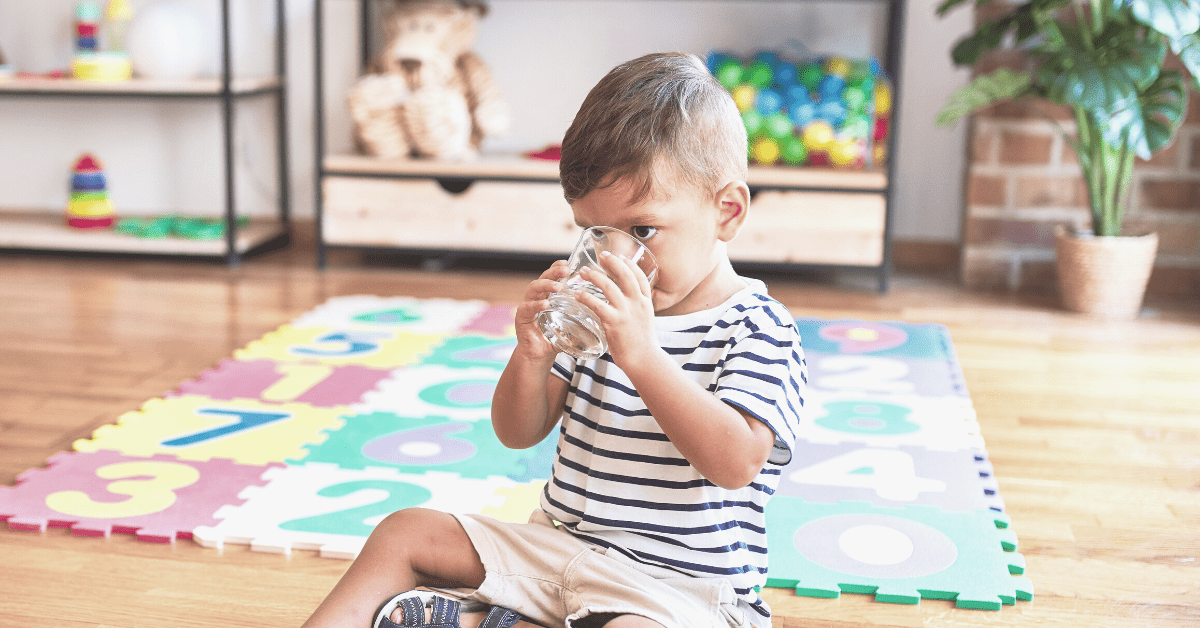

Fennies are proud to be accredited by the Early Years Nutrition Partnership (EYNP) for our menus and contribution to supporting good nutrition in the early years. We are delighted to bring you regular nutrition updates and evidence-based articles written by our Registered Nutrition Professionals from EYNP, Janet Aylott and Catherine Lippe.
This month’s topic: Food and Mood – how food can affect children’s mental health


Many studies highlight links between diet and mental health in children. These studies suggest that a healthy diet can support better mental health whereas a low-quality diet is more likely to be linked to poor mental health.
In this blog, we share with you 5 ways you can support your child’s mental health with food.


Having a regular meal and snack time routine has many benefits for children. One of these benefits is that eating regularly can help keep blood sugar stable throughout the day. If blood sugar dips children can feel more irritable, tired and restless. To avoid this it is recommended to offer three main meals and two or three small snacks daily for children aged 12 months and older.
The brain needs healthy fats in order to function properly. Omega 3 and omega 6 fats, which are found in oily fish, nuts and seeds especially walnuts, linseeds and rapeseed oil are particularly beneficial for mental health. If your child eats fish, aim to include 1 or 2 portions of oily fish per week. It is best not to offer oily fish more than twice per week. If your child doesn’t eat fish try adding a milled seed mix or nut butters to porridge, desserts or baking. Cooking with walnut or rapeseed oil is another good way to added omega fats to the diet.


You might have heard of the term ‘eat a rainbow’. This is a useful mantra to follow especially when it comes to fruits and vegetables. Different coloured fruits and vegetables all contain different levels of vitamins and minerals. Eating a variety of colours helps to ensure you are receiving a whole range of vitamins and minerals and can help to prevent low mood and depression.
Research suggests there is a connection between the gut and the mind, this is sometimes called the gut-brain axis. This is a two-way pathway where our mind can affect the gut (like when you get butterflies in your tummy if you are feeling nervous or anxious) but also that the gut can affect the mind.
It is suggested that looking after your gut health can help to improve your mood. Including lots of variety particularly from plant-based foods such as whole grains, fruits and vegetables, nuts and seeds, beans, pulses, as well as natural yoghurt and other probiotics is a good way to look after gut health.


The function of your brain, as well as many other bodily functions, is dependent on sufficient fluid intake. When we become dehydrated brain function reduces leading to poor concentration, brain fog and low mood. To support your child’s hydration, aim to offer a small drink (approximately 100-120ml) with every meal and snack. It’s a good idea to make water freely available for your child between meals too. Water is the best drink for children!


EYNP Nutritionist












View All
This website uses cookies so that we can provide you with the best user experience possible. Cookie information is stored in your browser and performs functions such as recognising you when you return to our website and helping our team to understand which sections of the website you find most interesting and useful.
You can read out full privacy policy here
Strictly Necessary Cookie should be enabled at all times so that we can save your preferences for cookie settings.
If you disable this cookie, we will not be able to save your preferences. This means that every time you visit this website you will need to enable or disable cookies again.